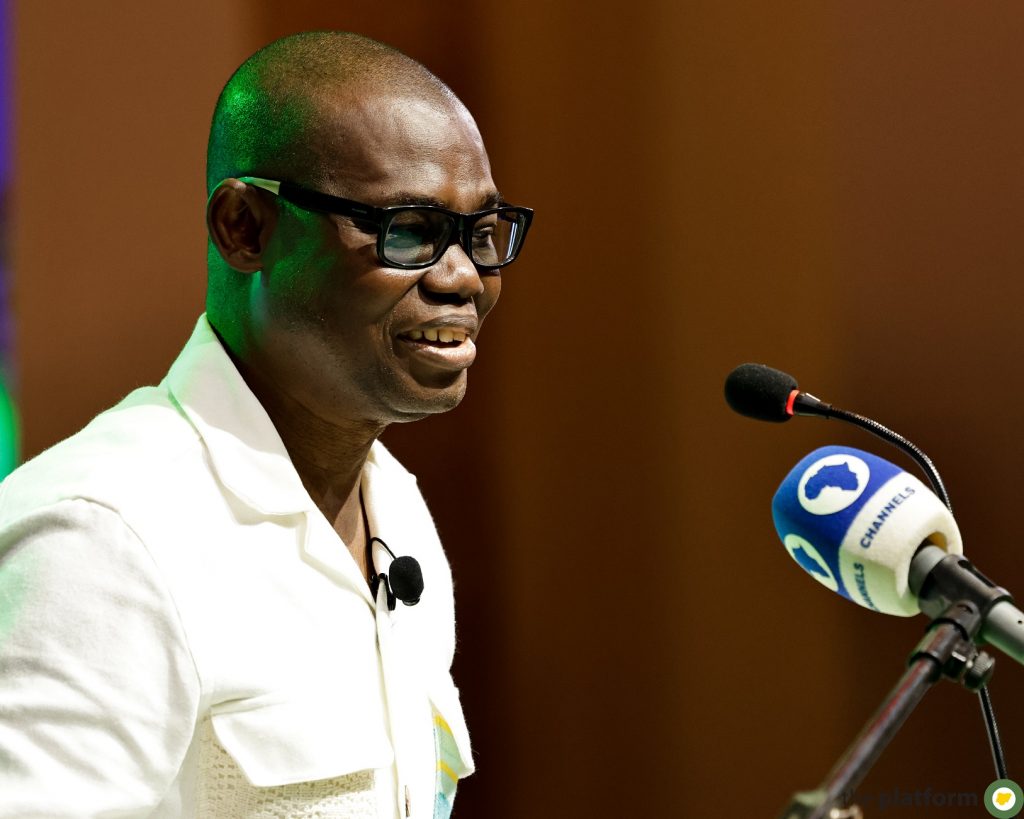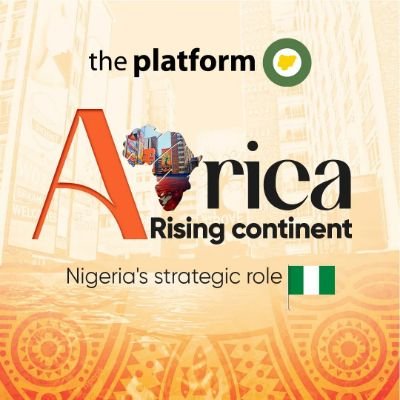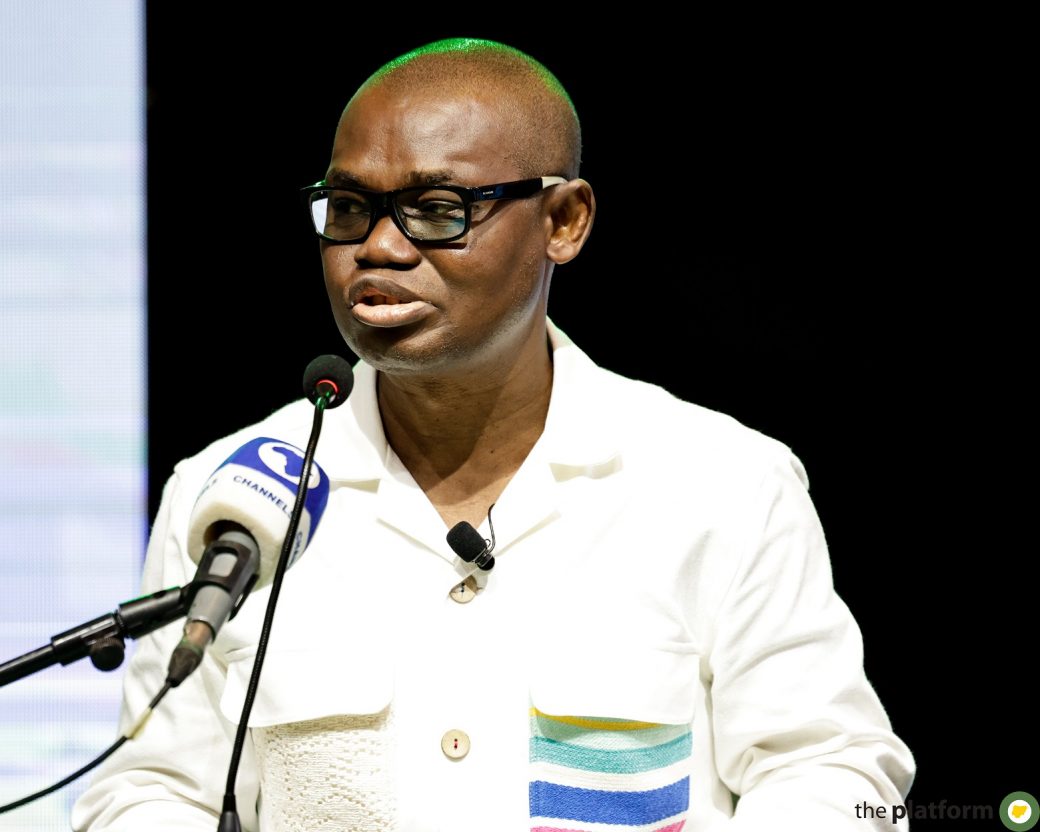Being the penultimate speaker of the day, Mr Alder started by lauding the impacts of The PlatformNG in Nigeria over the years and the brilliance of the Speakers that have spoken before him. He then likened what The PlatformNG did to various cases in human history where ideas were being shared. Human history is the history of talk shops and ideas, he declared. With this, Mr Alder revealed that the preamble to the Nigerian constitution borrowed ideas from the declaration of the American Independence which in turn borrowed ideas from the great thinkers of the age of enlightenment/the age of reason in Europe.
As his speech began proper, he announced that he would do something that was unusual to The PlatformNG. The first is that he would be taking a poll of the motivations of the different kinds of voters we have in Nigeria. He would also be doing a level-one analysis of the top 3 major candidates running for the 2023 elections.
In a bid to take the poll, he started by analysing the different types of voters we have in Nigeria. The first group is the tribalistic voters. The individual in this group will vote based on the tribalistic similitude between him and his choice candidate. The second category of voter is the religion-conscious voter. This electorate chooses a candidate based on the religion of the candidate. The third category is the voter that would vote for a particular party regardless of the candidate the party presents. The fourth category is the stomach infrastructure voter who would only vote based on the candidate who gives him “bread” as a lure to vote . The fifth is the one that would vote purely based on the manifesto. He is focused on merit and nothing else. He’s looking for the right saviour of the country and nothing more. The sixth type of voter is the businessman. He would vote for the candidate whom he considers business-friendly and one whose policies will create an enabling environment for business policies to thrive. He may personally know the candidate and would expect a benefit from the post-election equation. The seven kind of voter is a sentimental voter. This individual votes for purely sentimental reasons.
Upon concluding this analysis of voters, he then dropped a link for the audience to identify their motivations for voting in an online poll he took.
After this, Mr. Alder went on to analyse the 3 major candidates running in the 2023 elections. He reeled out the Pros of these candidates and left the audience to look for the Cons so that they can play the Cons of the three candidates against each other and decide who their choice candidate is.
The next thing he did was to make a list of issues that the next leadership should tackle. Grouping these issues into two broad categories, he stated that the first is the immediate and apparent issues. The second are the fundamental issues. The two immediate issues are the economy and security.
At this juncture, he then began to list the actions that the next leadership should take. The first is that the government must cut down waste in governance. The second is to increase social investment – education and healthcare should be priorities. The third one is to fight corruption as it is too expensive and it also encourages mediocrity and cripples excellence. The fourth is to sort out unemployment by creating people who will create jobs. With this point, he emphasized that eliminating corruption had nothing to do with absorbing more people into the civil service as that would create a bureaucracy and artificial bottle necks. The fifth was to revamp education. Everything should be linked to the private sector because the latter accounts for 80% of the GDP. Universities should be given full administrative autonomy and so JAMB should be scrapped. Student loans should be created and this has to be private sector managed. Polytechnics should be converted into creative enterprise schools for the various creative professions we have in this present generation. Theoreticians should not teach these courses but practising professionals. Internet connectivity should also be made free to access in these schools.
The sixth action to take is to fight inflation and the run-away exchange rate with productivity. We need to produce and export. The immigration sector should support exports. The seventh thing to do is to fix the problem of power by localising the solution to what each region has. For example, the Northern part of the country should use solar power. That’s a no-brainer.
The eighth was to viciously fight “419” which is known as fraud. This taints the reputation and image of Nigerians. The ninth thing to do was to reduce regulation and business encumbrances. The business registry in Abuja should be reformed. The insistence that one must have a certification to go into an enterprise is wrong. Also, the criteria for rejecting the name of certain enterprises to be registered should be removed. All these disenfranchise the youth – a creative bunch that must be free to choose the name of their creative enterprises.
He lamented the fact that there is no conceptual vision for the country and that the logic of our federation is wonky. He then went on to list the number of things that we have done in the past to solve our federation problem but that have all failed and have been used instead as instruments of corruption. The most important factors in a federating entity are equity and justice. We cannot have a nation where hegemony dominates.
Mr. Alder questioned what the vision for Nigeria was. He even suggested that we could decide to borrow an existing vision from another country. Making reference to the four words on the country’s Coat of Arms, he pointed out that any policy that fails the acid test of these 4 words namely – Unity, Faith, Peace and Progress should be reconsidered.
At the end of his speech, he read the results of the poll he put up for the audience earlier on. Revealing the results of the poll, 87% of the responses would vote based on the manifesto. He also said that the number of people who took the poll were urban youth who had access to the internet. This, he said, does not yet capture the minds of the other demography of people who didn’t take the poll.
With the results of the poll, Mr. Alder pointed out that it was only reasonable for anyone who was a strategist for any of the parties to focus not on the things that divided us such as religion, political party, race and ethnicity. Instead, the focus should be on the concerns of the urban youth that took this poll which is – what their leader will do in office.


